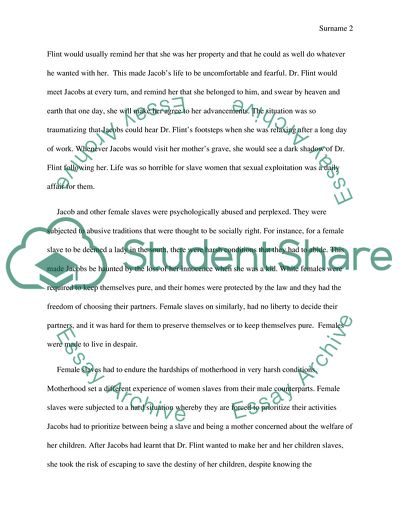Cite this document
(The Effects of Slavery to Humankind Essay Example | Topics and Well Written Essays - 1500 words, n.d.)
The Effects of Slavery to Humankind Essay Example | Topics and Well Written Essays - 1500 words. https://studentshare.org/history/1773085-incidents-in-the-life-of-a-slave-girl-written-by-herself-by-harriet-jacobs
The Effects of Slavery to Humankind Essay Example | Topics and Well Written Essays - 1500 words. https://studentshare.org/history/1773085-incidents-in-the-life-of-a-slave-girl-written-by-herself-by-harriet-jacobs
(The Effects of Slavery to Humankind Essay Example | Topics and Well Written Essays - 1500 Words)
The Effects of Slavery to Humankind Essay Example | Topics and Well Written Essays - 1500 Words. https://studentshare.org/history/1773085-incidents-in-the-life-of-a-slave-girl-written-by-herself-by-harriet-jacobs.
The Effects of Slavery to Humankind Essay Example | Topics and Well Written Essays - 1500 Words. https://studentshare.org/history/1773085-incidents-in-the-life-of-a-slave-girl-written-by-herself-by-harriet-jacobs.
“The Effects of Slavery to Humankind Essay Example | Topics and Well Written Essays - 1500 Words”. https://studentshare.org/history/1773085-incidents-in-the-life-of-a-slave-girl-written-by-herself-by-harriet-jacobs.


